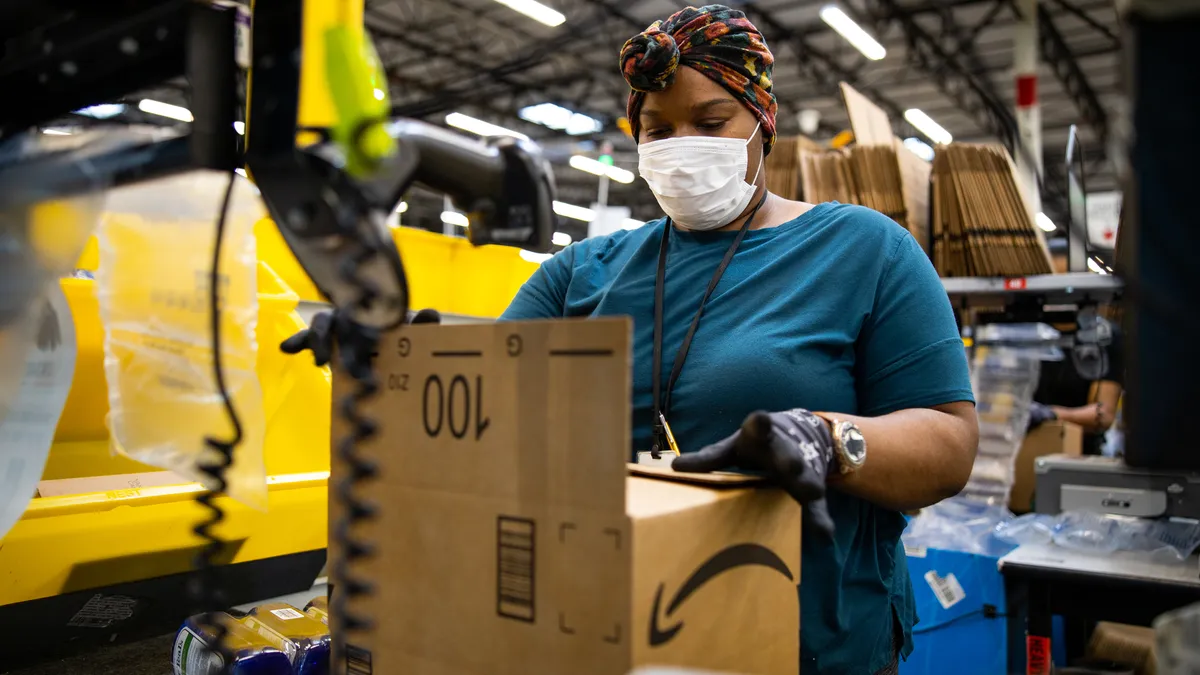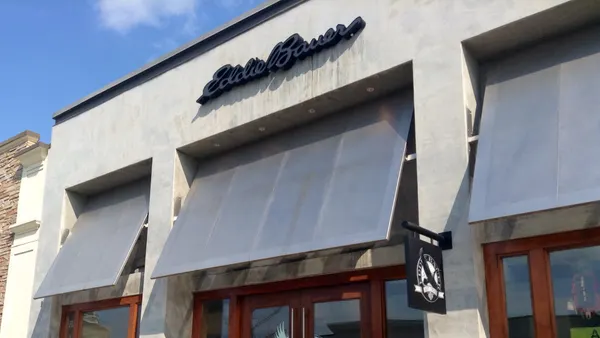Dive Brief:
- Amazon and consultants it employed broke federal law by retaliating against union-organizing activities in 2021 at its JFK8 fulfillment center and DYY6 delivery station, both located on Staten Island in New York City, the National Labor Relations Board said in a Friday announcement.
- The company violated the National Labor Relations Act by ordering employees to go home early, changing their work assignments and subjecting them to closer supervision in retaliation for exercising their right to organize, the agency said.
- Administrative Law Judge Lauren Esposito also found Amazon unlawfully interrogated employees about their union activity and that the company used racial stereotypes and racially prejudiced statements to disparage the union. The company also confiscated union literature and prevented employees from distributing it, which is unlawful.
Dive Insight:
Amazon's response to union organization efforts are in the spotlight and under scrutiny, again.
Within the NLRB’s recent ruling, the e-commerce giant is accused of sending an employee home early in retaliation for his support of union activity. That employee, Daequan Smith, worked at a nearby Amazon delivery station. Smith was fired in November 2021. The complaint with the NLRB alleged that Smith’s termination was punishment for his union involvement.
“Workers have the right to advocate collectively for a more equitable workplace — and it is unlawful for employers to prohibit or retaliate against them for doing so,” NLRB Region 29 Director Teresa Poor said in a statement. “I’m proud of the staff of Region 29 for diligently pursuing this significant case and litigating for strong, meaningful remedies.”
Esposito ordered Amazon to stop the unlawful activity and compensate the affected worker for any loss of earnings. The retailer must also post and electronically distribute a notice to employees. Amazon has until Dec. 19 to appeal the NLRB’s decision. Esposito made the ruling on Nov. 21. The decision followed 15 non-consecutive days of trial via video conference that began last June and concluded this March.
“We disagree with certain decisions within the ruling, but are glad the judge agreed that the terminated individual should not be reinstated,” Amazon spokesperson Mary Kate Paradis said in a statement to Retail Dive. “We continue to review other parts of the decision and are considering our next steps in light of this ruling.”
Over 5,000 people work at the JFK8 facility, which is the size of 14 football fields, according to NLRB documents. Esposito’s 84-page decision describes incidents of Amazon’s alleged unlawful actions in detail. They include hiring Bradley Moss at JFK8 as a labor consultant. Moss was an independent contractor for the Burke Group, a labor relations consulting firm with expertise in “preventative labor relations” and “union-free workplaces.”
In discussing a union campaign at a facility in Bessemer, Alabama, Moss is alleged to have told JFK8 employee Natalie Monarrez that the union campaign was “not a serious union drive,” but instead a “Black Lives Matter protest about social injustice.” Moss also told Monarrez that the JFK8 union organizers were “just a bunch of thugs,” according to testimony.
Moss testified that he spoke with 35 to 50 JFK8 employees daily. But Moss denied asking fulfillment center employees if they had participated in union activities, whether they had joined the local union, asking if they were interested in doing so, or stating that “supporting the union would be futile.”
The NLRB has 240 open or settled unfair labor practice charges against Amazon in 26 states, an agency spokesperson told Retail Dive in an email. They include complaints that Amazon deducted unpaid time from employees who were legally on strike in New Jersey; the retailer punished an employee in Florida for participating in protected concerted activities; Seattle-area Amazon employees were forced to sign a confidentiality agreement that interfered with their rights under the National Labor Relations Act; and that Buffalo, New York-area employees were held in anti-union meetings.
















